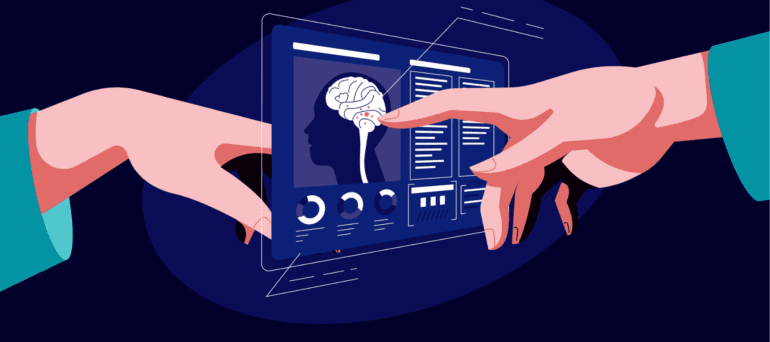TL;DR:
- Defense Health Agency (DHA) embraces AI and machine learning to revamp healthcare delivery.
- AI’s ability to forge intricate connections is a game-changer in healthcare.
- Dr. Lester Martínez-López highlights AI’s pivotal role in the Military Health System.
- Experts believe AI and ML can cut costs, boost readiness, and enhance personnel performance.
- Digital health tools rely on data for precise service and secure electronic health records.
- Machine learning techniques, from predicting wait times to diagnostics, offer transformative potential.
- Accessible data enhances AI’s ability to correlate inputs with sought-after insights.
- AI aids in identifying deployability limitations among service members.
- DOD’s extensive medical data collection is a key enabler of AI in healthcare.
- The future of AI lies in data accessibility, security, and interoperability.
- Human judgment remains paramount; AI empowers, but the human touch guides its utilization.
Main AI News:
In its relentless pursuit of a patient-centered healthcare paradigm, the Defense Health Agency (DHA) is propelling the transformation of healthcare delivery through cutting-edge digital health technologies, most notably artificial intelligence (AI) and machine learning (ML).
AI, including ML, grants our healthcare systems the unique capacity to forge connections, often intricate and swift, which would typically elude human capabilities. Unlike traditional programming, AI thrives on learning from the examples it encounters.
Dr. Lester Martínez-López, Assistant Secretary of Defense for Health Affairs at the Department of Defense, emphasized the pivotal role of AI, ML, and predictive algorithms in healthcare during the Defense Health Information Technology Symposium, held in August 2023 in New Orleans. He underscored the urgency to catch up with this evolving technology and to lead in developing reliable and effective AI solutions. “I see immense potential for AI to revolutionize patient care,” Martinez stated with conviction.
Health Information Technology took center stage at the symposium, where experts converged to discuss its potent role in healthcare enhancement.
The consensus among these experts is that AI and ML hold the promise of reducing costs, augmenting readiness, and optimizing personnel performance within military healthcare.
The Vital Nexus: Data and IT Tools
Central to the functionality of digital health tools is their reliance on data to deliver top-tier service for healthcare providers and to gauge service members’ deployability. These resources also serve as the bedrock for maintaining precise, secure, and efficient electronic health records.
Dr. Martinez-Martínez highlighted the profound impact of machine learning techniques, extending from predicting emergency room wait times to advanced medical diagnostics. The crux lies in harnessing these capabilities to revolutionize healthcare delivery in a substantial and meaningful manner.
As the system is used more extensively and data becomes increasingly accessible, it becomes progressively adept at establishing correlations between the information input by the provider and the sought-after insights.
One illustrative application within DHA involves the utilization of machine learning algorithms to identify limitations in the deployability of service members.
U.S. Navy Cmdr. (Dr.) John de Geus, Chief Health Informatics Officer for the U.S. Navy, expounded on the pivotal role of AI in facilitating swift access to military and occupational standards, thereby enabling precise recommendations for medical readiness and deployability limitations. He underscored that these advancements were made possible by the DOD’s wealth of medical data, one of the most extensive collections globally.
Holly Joers, Program Executive Officer for Defense Healthcare Management Systems, emphasized the future direction of AI in healthcare: “Getting data to where it needs to be is the future of AI.” She stressed the importance of having the right data at the right time, for the right patient, and the right provider, all while ensuring its security and interoperability.
Lisa Belter, Chief Technology Officer of Joint Operational Medicine Information Systems, echoed this sentiment by emphasizing the importance of building robust architectures to support seamless data movement, thereby unlocking the true potential of AI in healthcare.
Despite the transformative potential of AI tools in healthcare, de Geus was quick to underscore the enduring significance of the human factor. “AI is a tool,” he emphasized, “that empowers medical staff to perform their duties more efficiently. The ultimate decisions on how to best leverage this tool to enhance healthcare practice will always reside with the human touch.”
Conclusion:
The Defense Health Agency’s strategic embrace of AI and machine learning signifies a transformative shift in military healthcare. These technologies promise cost reduction, enhanced readiness, and optimized personnel performance. With a focus on data accessibility and security, the healthcare market can anticipate increased efficiency and precision in patient care, all while upholding the indispensable role of the human touch in healthcare decision-making.

